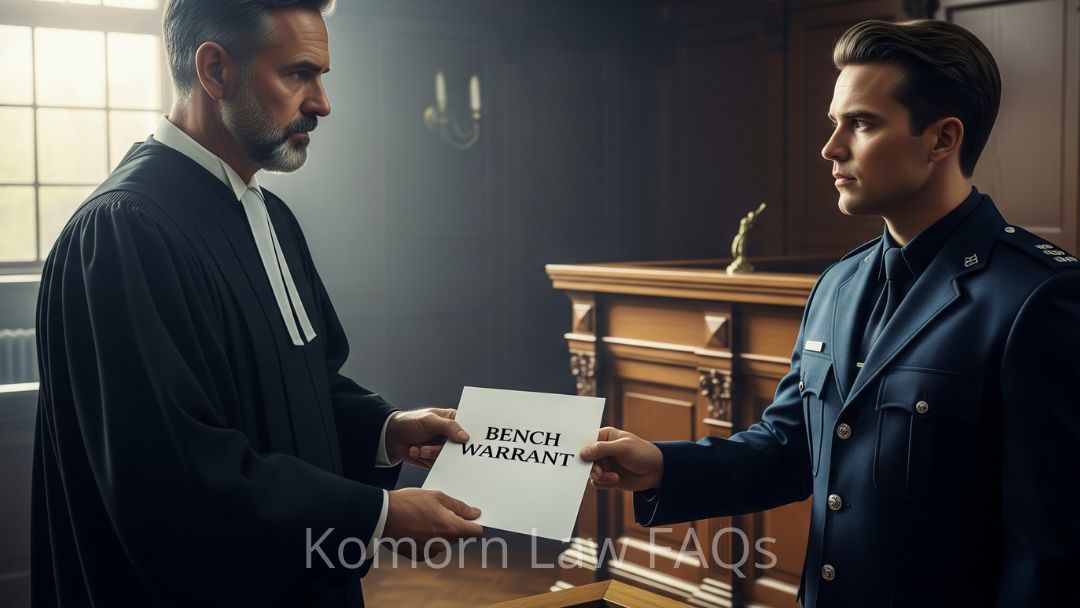Forfeiture Law in Focus: SCOTUS and Sixth Circuit Issue Landmark Rulings
The landscape of forfeiture law has been significantly shaped by recent decisions from the U.S. Supreme Court and the Sixth Circuit Court of Appeals. These rulings, in the cases of United States v Darden-Mosby and Culley v Marshall, provide crucial insights and establish new precedents that will impact future forfeiture proceedings.
Attorney Fees and Right to Counsel
Another significant trend in forfeiture jurisprudence is the recognition that the right to counsel can supersede forfeiture statutes. Courts have increasingly ruled that individuals facing forfeiture actions are entitled to use their seized assets to pay for legal representation. This trend reinforces the importance of ensuring that defendants have access to legal counsel to defend their rights effectively.
Michigan Forfeiture Laws: Recent Changes and Requirements
Michigan has implemented several changes to its forfeiture laws to enhance due process and protect property owners’ rights. Key statutes governing forfeiture in Michigan include:
- Requirement for Conviction: Michigan law now mandates a criminal conviction for forfeiture actions involving personal property valued under $50,000 (excluding cash) unless the owner consents to the forfeiture.
- Filing Deadlines: Law enforcement agencies must file a forfeiture action within 28 days of seizing property valued over $50,000. If the property is valued under this amount, a conviction is required before proceeding with forfeiture.
- Claims of Interest: Property owners must file a claim of interest within 20 days of receiving notice of the forfeiture action. For property valued over $50,000, no claim of interest is required before the police are obliged to either return the property or forward the case to the prosecutor’s office.
United States v Darden-Mosby
Background: The DEA conducted a search of the defendant’s home and vehicle, uncovering an unregistered firearm, drug paraphernalia, and 13.6 grams of cocaine. Significant amounts of cash were seized from various locations, including $112,690 from the defendant’s bedroom. Additional sums were seized during a subsequent traffic stop. The court’s decision hinged on the distinction between legitimate and illegitimate sources of the seized funds.
Court’s Holdings and Reasoning
- Cash in the Safe and Shoebox: $92,470 – The Sixth Circuit upheld the forfeiture, emphasizing the presence of bulk cash in proximity to drug paraphernalia and an unregistered firearm. The defendant’s history of dealing in cash for drug transactions, contrasted with banking his legitimate business earnings, further solidified the court’s decision. The court applied established principles, asserting that bulk currency, drug convictions, unexplained legitimate income, and proximity to drugs collectively justified forfeiture.
- Cash in and on the Dresser: $20,220 –Here, the defendant successfully demonstrated a legitimate source for the funds. Evidence of withdrawals for home repairs and the absence of drug residue led the court to rule against forfeiture. This part of the decision underscores the importance of substantiating the legitimate origins of contested assets.
- Cash from the Traffic Stop: $2,500 –Despite administrative forfeiture proceedings, the court determined that criminal forfeiture was not applicable due to procedural dismissals by the government. This nuanced aspect highlights the complexities in distinguishing between criminal and administrative forfeiture pathways.
Culley v Marshall: Balancing Timeliness and Due Process
Background: In Alabama, vehicles were seized under civil forfeiture laws after their owners lent them to individuals who were subsequently arrested for drug offenses. The central issue was whether the lack of preliminary hearings violated due process rights.
Supreme Court’s Holdings and Reasoning
The U.S. Supreme Court ruled that due process does not necessitate separate preliminary hearings before the main forfeiture proceedings. The court emphasized that timely hearings sufficed, drawing parallels to the speedy trial rights of defendants. The decision referenced historical practices and legislative intent from the period when the Fourteenth Amendment was ratified, reinforcing that preliminary hearings were not a due process requirement for personal property seizures.
Timbs v Indiana: A Landmark Decision on Excessive Fines
Background: In Timbs v Indiana, the Supreme Court held that the Eighth Amendment’s prohibition against excessive fines is applicable to the states through the Fourteenth Amendment. This case involved the seizure of a Land Rover worth $42,000, which Timbs had purchased with money from his father’s life insurance policy. The state seized the vehicle after Timbs was convicted of drug offenses, even though the maximum fine for his crime was $10,000.
Court’s Holdings and Reasoning
The Court ruled that the seizure of Timbs’ vehicle was grossly disproportionate to the gravity of his offense and thus violated the Eighth Amendment’s Excessive Fines Clause. This decision is pivotal as it underscores the constitutional limits on state and local governments’ power to impose fines and forfeitures.
Legal Counsel and Your Rights
When facing legal challenges, particularly in criminal cases, it is advisable to seek legal counsel immediately.
An experienced attorney can provide guidance on how to navigate interactions with law enforcement while safeguarding your constitutional rights.
Since 1993 our expert legal defense in navigating criminal law matters and protecting your constitutional rights are what we eat for breakfast everyday.
Contact Komorn Law PLLC if you’re ready to fight and win.
Research us and then call us.
Recent

Criminal Law FAQs – Bench Warrant
Michigan Criminal Laws FAQs Bench WarrantsAccording to Michigan State Law (Michigan Compiled Laws - MCL), a Bench Warrant is a court order that directs law enforcement officers to arrest and bring a specific individual before the court. It's issued by a judge (from...

Criminal Law FAQs – Traffic Offenses
Michigan Criminal Laws FAQs Traffic OffensesAccording to Michigan State Law (Michigan Compiled Laws - MCL), Traffic Offenses encompass a wide range of violations related to the operation of motor vehicles on public roads and highways. These offenses are primarily...
Other Articles
Video kept from family shows police force not drugs killed son
police and paramedics inflicted “inhumane acts of violence”A mother has filed a federal lawsuit claiming that, while her son was experiencing a seizure in his Tennessee apartment, police and paramedics inflicted “inhumane acts of violence” on the 23-year-old instead...
What could happen when you click the – I agree – box?
Wrongful death suit against Disney serves as a warning to consumers when clicking ‘I agree’A wrongful death lawsuit involving Walt Disney Parks and Resorts highlights the critical importance for consumers to meticulously review the fine print before registering for a...
4th Circuit says – Assault weapons can be banned
This case is about whether the Act’s general prohibition on the sale and possession of certain “assault weapons,” are unconstitutional under the Second Amendment. An en banc federal appeals court upheld Maryland’s ban on assault-style weapons in a 10-5 decision...
SCOTUS – Justices uphold laws targeting homelessness
Does not amount to “cruel and unusual punishment” under the Eighth Amendment The Supreme Court has affirmed the validity of ordinances in a southwest Oregon city that restrict individuals experiencing homelessness from utilizing blankets, pillows, or cardboard boxes...
















